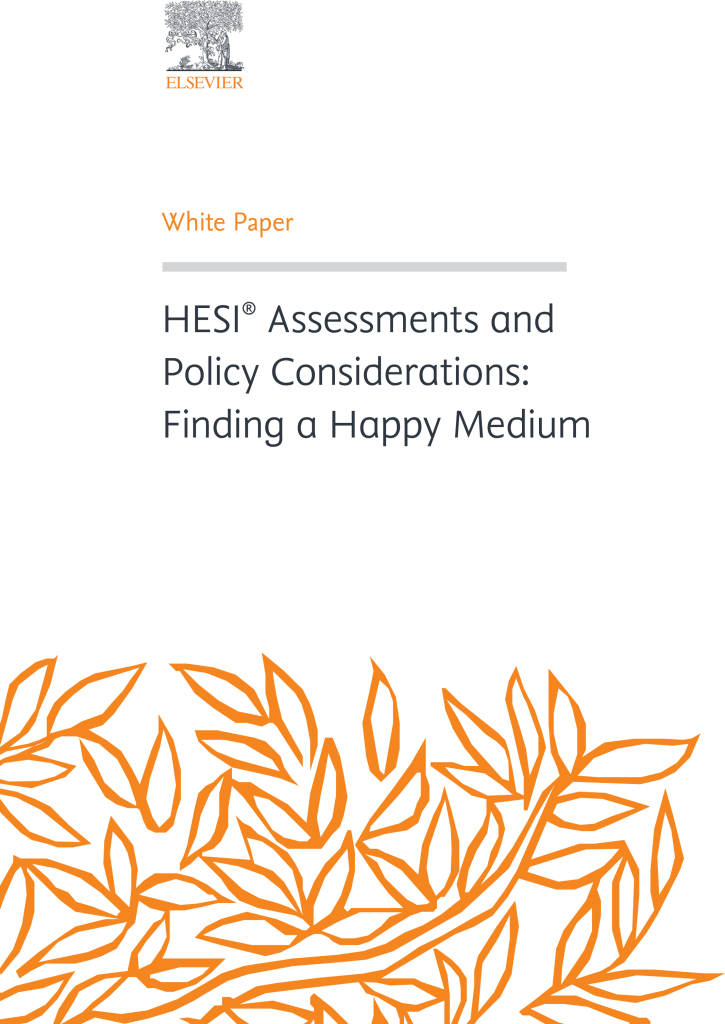
White paper: 2023 HESI® Assessments and Policy Considerations: Finding a Happy Medium
Authors: Cheryl Mee MSN, MBA, RN, FAAN | Mardie Timken MSN-Ed, RN
Standardized tests in nursing education, like HESI exams, do not create a high-stakes environment. It is the program policy developed by faculty on standardized tests that may cause a negative impact. Factors that create negative impact include high grading weight or consequence and/or a benchmark established that limits course or program progression or denying the ability to take licensure exam.
This white paper reviews the benefits of HESI testing and supporting literature. Elsevier’s Nursing Education Team will offer recommendations based on peer-reviewed studies, best practices, and discussions with faculty who have observed improved program outcomes with HESI testing.

White paper highlights
- When making high-stakes decisions, it is essential to use multiple sources of evidence to evaluate basic nursing competence. This includes employing various approaches to assess knowledge and clinical abilities.
- Evaluative measures are used to assess student achievements while also supporting learning, improving teaching, and guiding program enhancements.
- Faculty must have access to comprehensive testing information before administering exams and writing related policies. They are responsible for understanding the technical specifications of standardized tests and effectively communicating this information to students.
- Teach students about the purpose of the tests, student-level factors that affect the results and the testing methods used within a program.
- Review standardized testing practices and progression policies based on test results to ensure alignment with accepted fair testing practices.
